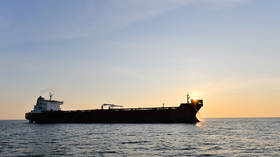 © Getty Images / Alexey Bakharev
© Getty Images / Alexey Bakharev
Russia has started supplying oil directly to North Korea in defiance of UN sanctions, the Financial Times reported on Tuesday, citing satellite images as evidence.
According to the report, the images that were shared with the outlet by a UK think-tank – the Royal United Services Institute (RUSI) – show that at least five North Korean tankers travelled this month to collect oil products from Vostochny Port in Russia’s Far East.
The shipments, which started on March 7, are reportedly the first documented direct seaborne deliveries from Russia since the UN Security Council (UNSC) imposed a strict oil import cap on North Korea in 2017 in response to its long-range missile and nuclear tests. The UN requires member countries to report on the supply, sale, and transfer of all refined petroleum products to North Korea, and has imposed a 500,000 barrel limit on Pyongyang’s annual imports of refined petroleum.
“These oil deliveries constitute a full-frontal assault against the sanctions regime, which is now on the brink of collapse,” a former coordinator of the UN panel that monitors sanctions against North Korea, Hugh Griffiths, was quoted as saying.
The report highlights that the vessels, which are North Korean-flagged and classified as oil product tankers, all visited the same berth operated by a Russian oil company at Vostochny Port, where they appeared to load.
Satellite imagery reportedly confirmed that two of them then travelled from Vostochny to the North Korean port of Chongjin, where they appeared to unload.
“The vessels we’ve seen at Russian terminals are some of the largest-capacity vessels in North Korea’s fleet, and the vessels are continually sailing in and out of the port,” Joseph Byrne, a research fellow at RUSI, told FT. “Several of these vessels are also UN-designated, meaning they shouldn’t even be allowed entry into foreign ports, let alone involved in oil deliveries,” he claimed.
RUSI researchers have calculated that the oil deliveries documented from Vostochny Port could amount to 125,000 barrels of oil products — a quarter of the permitted annual quota — in a matter of weeks, the FT wrote.
The UN’s sanctions committee reported last June that exports of oil from Moscow to Pyongyang resumed in December 2022 after a two-year halt. North Korean Foreign Minister Choe Sun Hui said at the time that “strategic cooperation” between the two countries has never been stronger, characterizing it as a new “heyday” in bilateral ties.
Disclaimer: The copyright of this article belongs to the original author. Reposting this article is solely for the purpose of information dissemination and does not constitute any investment advice. If there is any infringement, please contact us immediately. We will make corrections or deletions as necessary. Thank you.



